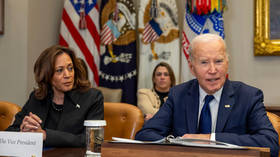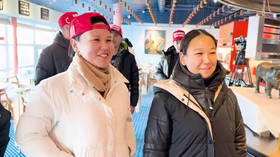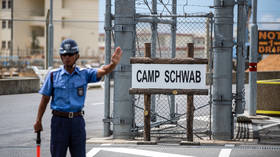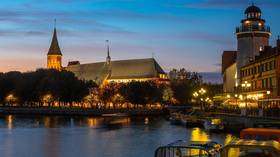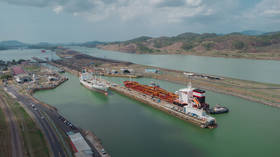'Is it Europe for the banks or Europe for the people?'
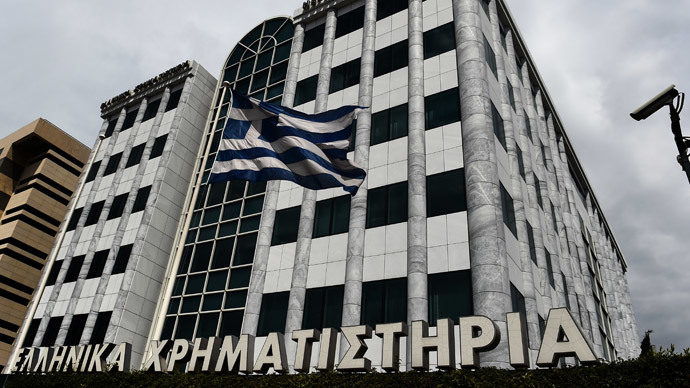
Huge debt and unemployment in Greece are the result of the extreme neo-liberal policies pursued by the Troika that are just aimed at saving the banks but not the people, Kostas Isyhos, a member of the political secretariat of Syriza party, told RT.
The German Chancellor Angela Merkel has arrived in Greece as it returns to the bond markets, to support for the Greek government’s austerity measures. However, several days before Merkel’s visit more than 20,000 workers, pensioners, students and the unemployed marched peacefully through the streets of the Greek capital, chanting: "EU, IMF take the bailout and get out of here!" The protesters blame the EU, the IMF and Greece’s ruling government for draconian measures aimed at saving banks but not people.
RT:One economic forecast is saying that there is projected growth for Greece and maybe things will start to improve just now. What is your view on this?
Kostas Isyhos: We have been hearing this tale for the last three years, that growth is just around the corner.
Unfortunately, Ms. Merkel is participating in the pre-electoral propaganda of the right-wing government, this bilateral, bipartisan government which has become one of the best agents of the lenders in following the Troika’s policies. The economic policies that have been followed in the last three years have created a great ordeal and broad despair for the more than 30 percent of the population living under the poverty line and about 30 percent just above this line. So we have more than 60 percent of the people in either extreme poverty or poverty. This is the result of following extreme neo-liberal policies, which in a sense just save the banks but do not save the people.
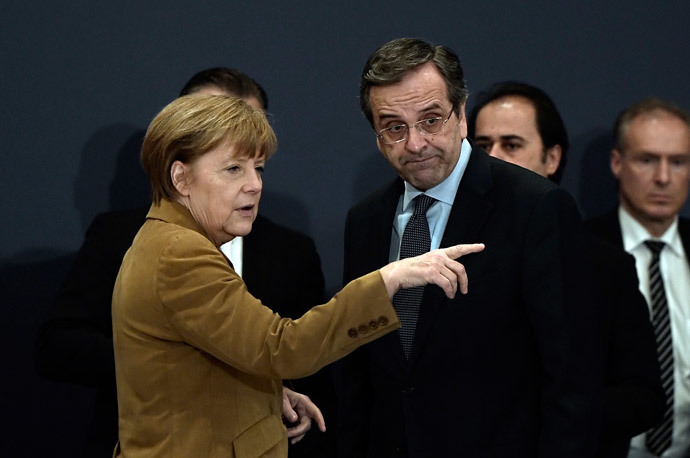
RT:In terms of the big picture, financially speaking Greece has finally put some bonds on the market. For the first time in four years that has happened, the global community, or at least the global banks, are snapping them up. How it will change the situation?
KI: This is a two-side story. Financial markets in the private financial sector are reacting positively to this. But we should remember that 500 million euros will be paid in the short-medium term for loans on these bonds. We must remember also that Greece is still in recession and these bonds are being auctioned through the British legal system and not the Greek legal system, meaning that there is a danger on the corner when it’s time to pay them back.
RT:Do you think Greece is going to need another bailout?
KI: No. Greece needs to restructure its debt. A large part of the debt has been hideously accumulated over several decades through corrupt governments and through corrupt policies which have even violated the Greek constitution. So part of our policy is to have an international and pan-European body which will take this into account and will decide what part of the debt is hideous and of course to restructure this debt. This debt is still growing. All the projections for the next year are that the debt will grow even if we get out of recession.
RT:What part of Europe do you see Greece being in terms of the eurozone and the EU?
KI: it’s a very good question. Greece is a part of the peripheral Europe, of Southern Europe which has suffered stagnation, large-scale unemployment, and large immigration, especially among youth. Over 60 percent of the youth in Greece today are unemployed. This is a third-world figure, and the country has gone through a war with this kind of figures. I would say that Europe is breaking apart because this is not a united Europe, it is a Europe of the banks or a Europe of the people, and we are supporting the second choice.
RT:Some of the people Angela Merkel is meeting today are young entrepreneurs. Can these people help put the country back on its feet and help to guide it to the future?
KI: I don’t know who these young entrepreneurs are, but I do know that the youth of Greece is largely unemployed or under-employed, without trade union rights, social agreements or even a social policy for their health. So I would suggest that Ms. Merkel should meet with these people because these people consider Ms. Merkel as persona non-grata today in Greece.
The statements, views and opinions expressed in this column are solely those of the author and do not necessarily represent those of RT.
The statements, views and opinions expressed in this column are solely those of the author and do not necessarily represent those of RT.



